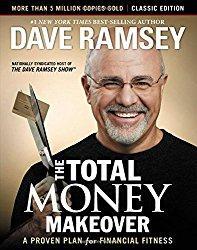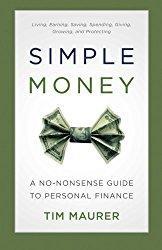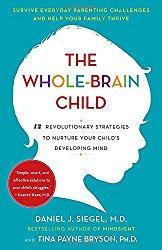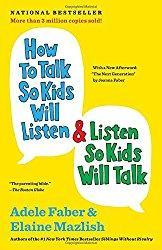Most of the time it feels good to live a financially stable life, which is where we are after spending the last 20 years doing things like buying used cars, a smaller home than we could get a loan for, and eating in. It is nice to have money in the checking account to pay for the various $600 emergencies that come up like car repairs. It is great to be able to pay for unexpected medical bills that come with having kids without worrying about finding the money. A few months ago, we even bought a few acres of land to use for camping or just hanging out and were able to do so by just selling a few stocks. Really, the land is almost an investment in that it will keep up with inflation at least. The only cost is property taxes and a minimal amount of upkeep.
There are sometimes, however, when you wonder about being financially responsible. The first is when real estate is really doing well and your friends with the 80/20 loans and HELOCs up to their eyeballs are seeing their net worths increase a hundred thousand per year because home prices are climbing quickly. At times like that you wonder if you really should have accepted the lure of leverage like everyone else and bought a bigger house with a lot less down. Luckily, times like the 2008 housing bust are there to remind you of why you made that 20% down-payment and then paid off your 15-year loan in twelve years.



Need supplies for your home or office Find them here
The second time where i wonder if saving up is worth it, which is what we’re staring straight in the face, is when you start to look at college tuition and financial aid. We have a son who is just two short years away from college, which means that we’ll be sending out applications late next year and seeing what offers we get on tuition. Looking at tuition offers is something I’m not looking forward to.
Our income really isn’t that high. We’re upper-middle class, but are on one-income and certainly not making the salary of doctors and those high up in the business world. Based on income alone, I’m sure we’d receive some tuition relief from many colleges. With our net worth, however, I’m sure we won’t get any offers of financial aid from the government, nor should we. I am hoping that there are some true scholarships – where they bribe your child to go to their school because of his/her grades and accomplishments – that my son can win since he really deserves them. He’s had straight A’s since 6th grade and already scored in the 30’s on his ACT during his first try as a Sophomore, sans any prep classes. Because I’m thinking that our net worth will knock us out of the possibility of any sort of financial aid – I probably wouldn’t even bother filling out the forms, except I’m sure some of the scholarships, such as the state lottery scholarship, will probably require it.




Check out the latest books on investing
It’s not that I mind just paying for college. I think everyone who is able should do so. It is irritating to see Money Magazine giving out all sorts of advice on how upper-middle class people, who could pay for college if they wanted to and made it a priority, can manipulate their accounts and financial situation to “maximize their student aid.” What is bothersome, however, is how I perceive college tuitions are set by the colleges.
You see, just as with healthcare, the prices on the books for most colleges are not the real price. They are like the MSRP sticker on the car window. It may say that tuition is $40,000 per year, but almost no one actually pays that. After you get an offer, the college looks at your financial situation and decides how much you really need to pay. Some people pay nothing. Some people pay $10,000 per year. Some people pay $25,000. And it isn’t like the people paying nothing have any different classes, access to professors, or dorms than those paying full price.
And I’m not taking anything away from someone who came from a home with one parent who worked extra jobs to put food on the table and obviously didn’t have any money to put away for college. In that case I think the student should get a break because there are great students who come from everywhere and we don’t want just the kids of upper-middle class parents and the wealthy going to colleges. Plus, making an investment in a child that made good grades and prepared for college without a parent looking over his/her shoulder constantly and driving them also makes great sense as a society. Such a child has shown that they are self-driven. These are the kind of people you want to provide with tools to create things and to lead people.
What irks me is seeing people who have the means having no penalty for not putting money away for college, as would be the responsible thing to do. In fact, there appears to be a penalty for being responsible. From what I’ve heard, when schools decide how much you need to pay for tuition, they may look for any money in the child’s name, like custodial accounts that were set up when they were minors, and assume that money would be spent on tuition. They might also look at college savings accounts like 529 Plans and Coverdell Savings Account (educational IRAs) and count that as the family’s expected contribution.




Find books on Parenting and Relationships from Amazon
So let’s say that Sammy Student walks up to the bursar’s office at WhatsamattaU, which has a list price of $25,000 per year, and has $20,000 in mutual funds that he gained by putting away birthday gifts from relatives and summer jobs. Let’s also say that his family has put away $36,000 in an educational IRA, which has grown to $80,000 with investing. The family makes $80,000 per year in income. The school might then decide that Sammy must pay the $80,000 in tuition over the four years since they assume he’ll use all of the money in the educational IRA and the money in his mutual fund account for tuition and some of the $80,000 in room and board over the four years. They assume the family will kick in another $15,000 per year for room and board from their income, so Sammy and his family end up paying $160,000 of the full $180,000 price.
Next comes Franklin Freshman, whose family also makes $80,000 per year. Franklin spent all of the money he got from birthday gifts. His parents just figured that things would work out for college somehow and went on an extra vacation each year instead of putting any money away for Franklin’s college. When Franklin gets to the bursar’s office, because he and his parents have no money saved, the school decides that his tuition would be $5,000 per year, expecting Franklin’s parents to pitch in $20,000 per year, including $15,000 per year for room and board. Franklin and his family get the same education, but only pay $80,000 – half of the price Sammy’s parents paid. Both families have the same income and the same advantages. One just chose to save for college and the other did not. Part of the money Sammy is paying therefore goes to cover some of Franklin’s expenses.
So, we’re basically encouraging people to not save for college, because if they do save they’ll pay more than if they don’t. That makes me wonder, am I being a sucker for saving up? Should I encourage my kids to spend their birthday money on games, fun, and maybe a car while they’re in high school, rather than saving and investing? My goal is to have them start an emergency fund to help them get a good start in life, rather than hitting the streets with nothing after college, but maybe the college will just scoop up any savings they have anyway. I’m a bit late on the college savings accounts, having saved for 16 years already. Maybe I should have just invested it elsewhere or just bought a new car or two along the way.
Has anyone out there already made it through the college tuition game? What was your experience? Is it worth it to save up? Are there advantages?
Follow me on Twitter to get news about new articles and find out what I’m investing in. @SmallIvy_SI
Disclaimer: This blog is not meant to give financial planning or tax advice. It gives general information on investment strategy, picking stocks, and generally managing money to build wealth. It is not a solicitation to buy or sell stocks or any security. Financial planning advice should be sought from a certified financial planner, which the author is not. Tax advice should be sought from a CPA. All investments involve risk and the reader as urged to consider risks carefully and seek the advice of experts if needed before investing.
